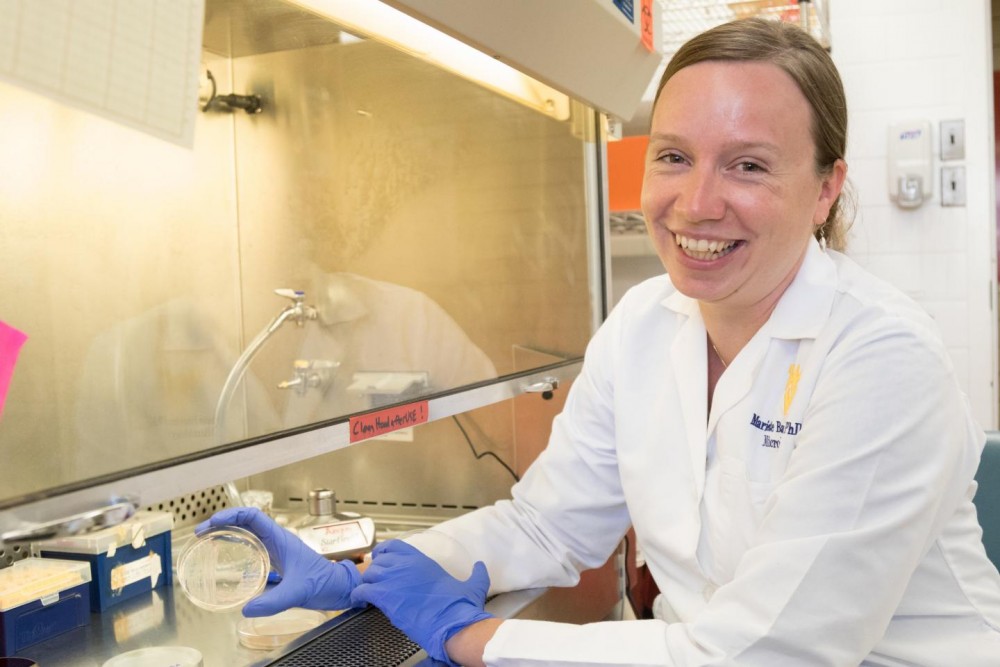
As various bacteria continue to evolve and resist current vaccine treatments, West Virginia University (WVU) researcher Mariette Barbier is working to preserve vaccine effectiveness against pertussis or whooping cough.
Her efforts have been awarded $2.6 million from the National Institutes of Health, to keep her funded for at least five years. While current pertussis vaccines are highly-effective, having dropped the annual mortality rate from around 9,000 in the 1940s to 13 in 2017, it is not guaranteed that it will remain so effective.
“One of the issues with the pertussis vaccine is that it’s pushing bacterial evolution to the point that the bacteria are trying to find a way around the current protection that the vaccine provides,” Barbier said.
There are two types of pertussis vaccines currently in use: one for infants and one for adolescents and adults. While new strains could reduce their effectiveness, Barbier is investigating whether adding a molecule to their contents could stabilize their usefulness into the future. For that, she is looking at a particular, iron acquiring antigen — a molecule that occupies the surface of bacteria and undertakes various actions to keep bacteria thriving. Pertussis contains between three and five antigens, but whooping cough has already evolved around one of them — pertactin.
“It’s almost like they’re hiding from the vaccine,” Barbier said, “and the reason they can do this is that they don’t need pertactin. It’s not essential.”
Iron acquisition is, however, essential for bacteria growth. It has no way of deactivating them.
Beyond this, Barbier is also investigating whether changing a vaccine component known as adjuvant could prolong booster shot effectiveness. Adjuvants are a way to make immune systems react to antigens. She wants to see if other substances could create additional immune cells and diversify that response to help vaccines work longer.
“Vaccines–so far–only work as well as our immune system performs with natural infection,” Kathryn Moffett, the section chief of pediatric infectious diseases for the WVU School of Medicine, said. “After recovery from whooping cough, a person is susceptible to getting the infection again in 15 years. Current protection from existing vaccines is 3 to 7–or maybe 10–years. That’s not as good as natural disease. That’s the reason why Dr. Barbier’s work is so important: to get better and longer protection.”




